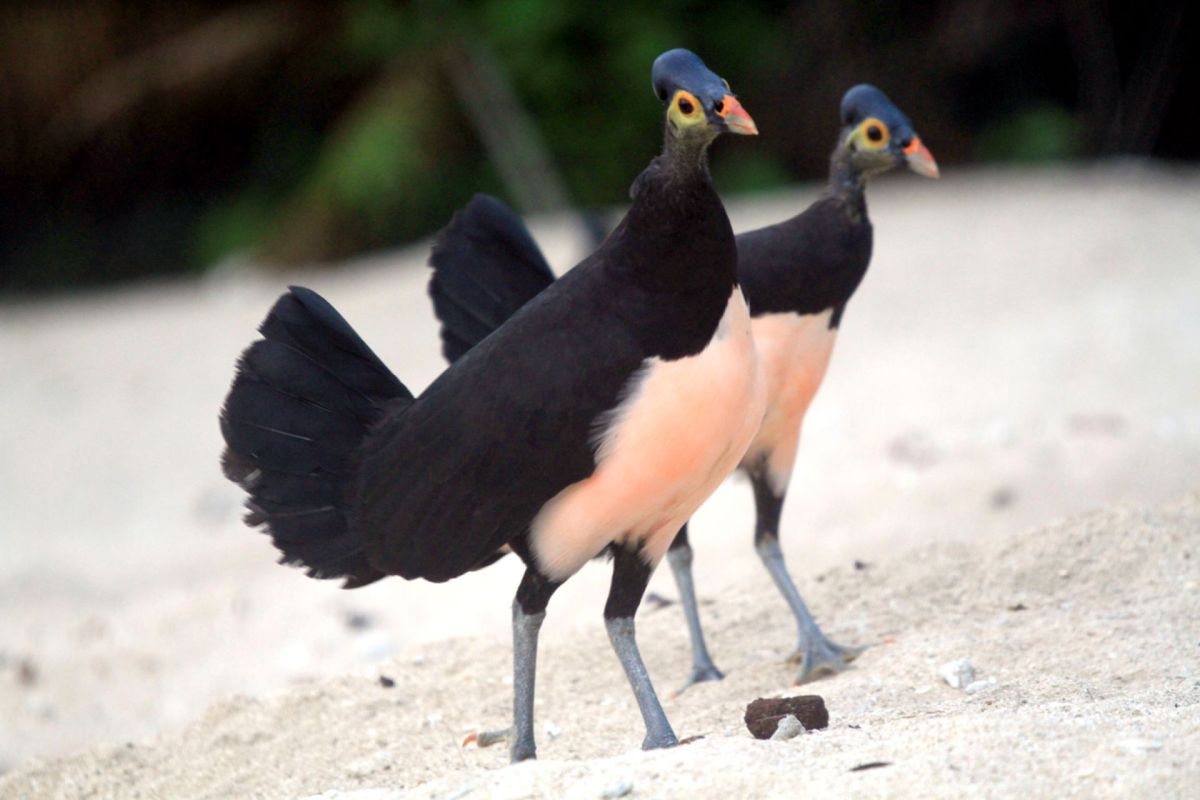An iconic bird of Indonesia is under threat of extinction, and human activities are primarily to blame. Construction activities are accelerating the destruction of the birds' habitats and negatively impacting their ability to lay eggs.
What's happening?
The Associated Press reported that the critically endangered maleo, which has already seen its numbers decline by more than 80% since 1980, is facing a new threat due to the development of a new capital city in Borneo.
"The next step is extinction," Alliance for Tompotika Conservation (AITo) director Marcy Summers said.
Maleos are native to Sulawesi — more than 400 miles away from Borneo — and its surrounding islands, but the western part of Sulawesi is being used as a support base and launching point for construction operations.
Noise pollution from roadways has reportedly made some maleos hesitant to visit their nesting grounds on the other side of the asphalt, while the removal of trees has further disrupted their habitat.
The poaching of the birds' eggs, coastal erosion, and developments on maleo nesting grounds have further exacerbated the issue.
Why is the decline of the maleo concerning?
The extinction of a species can have widespread consequences because of the interconnectedness of our ecosystems, creating a harmful cycle that highlights why it's so important to create awareness about how to engage with nature respectfully.
Maleos eat a variety of insects as part of their diets, including ants, termites, and beetles.
While insects do play important roles in the environment — with termites, for example, helping to maintain soil quality — those who have dealt with an infestation of the wood-eating insects in their houses can likely speak to why an overabundance of them can be hazardous.
Meanwhile, according to Climate Funds Update, deforestation is responsible for 12-20% of heat-trapping pollution that has caused global temperatures to rise, in turn contributing to coastal erosion and an increase in severe weather events.
What is being done to help maleos?
Indonesia has made it illegal to take the protected birds' eggs, per the AP.
Despite the laws, theft of the eggs does still occur, as the outlet noted, but AITo said on its website that "virtually all poaching at protected sites has ceased" since locals at the village in Taima requested the organization's assistance in 2006.
West Sulawesi regional secretary Muhammad Idris added that the government is dedicated to the protection of the birds despite the construction project.
"Nature conservation must be used as an achievement and (projects) must not be built leaving behind problems," he told the AP, though the report does not clearly state the next steps.
"It is possible to still restore and protect an area enough that maleos could continue to live, could continue to exist in West Sulawesi, in Mamuju regency," Summers added.
Join our free newsletter for cool news and cool tips that make it easy to help yourself while helping the planet.









